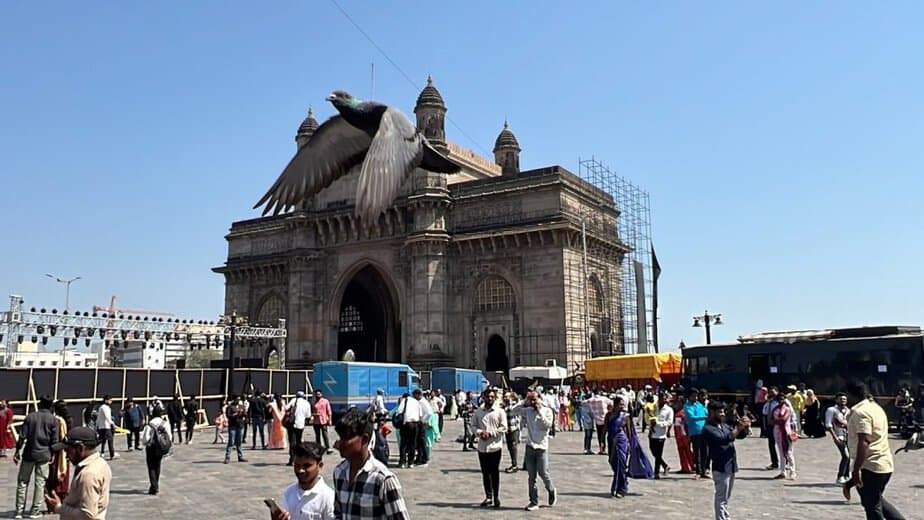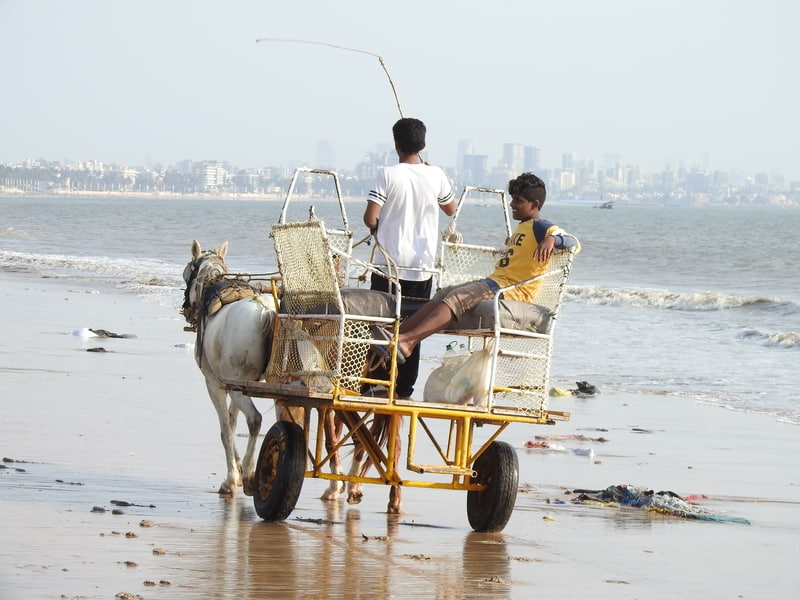Mumbai, India’s bustling financial capital, may seem like an intimidating place to navigate without money. Yet, this city of dreams also has a generous side, offering countless ways to get by even if your pockets are empty.
From free food and shelter options to activities that require nothing but a bit of resourcefulness, here’s a guide to surviving in Mumbai without money.
1. Where to Find Free Food
• Community Kitchens and Langars: Mumbai has many Sikh Gurudwaras, such as the one in Dadar, that provide free langar (community meals) every day. Langars offer simple but nourishing vegetarian meals to anyone, regardless of background or religion.
• Temples and Religious Institutions: Places like the Iskcon Temple in Juhu and many other Hindu temples distribute prasad (blessed food) to visitors. These meals are typically free or require a very small donation, and they’re a lifeline for many in need.
• Charitable Organizations: Some NGOs in Mumbai, like the Robin Hood Army and Feeding India, distribute leftover food from restaurants and events to the hungry. Keep an eye on local announcements or reach out to these organizations if you’re in need of a meal.

2. Finding Shelter and Safety
• Railway Stations and Terminals: Mumbai’s railway stations, such as CST, Dadar, and Bandra, are always busy and are places where you can stay safe, especially at night. While it’s not ideal, many travelers and people in transit rest here temporarily.
• Temples and Gurudwaras: Some temples and gurudwaras, especially in areas like Dadar, Andheri, and Borivali, allow people to sleep on their premises. Always be respectful and follow any guidelines the place may have.
• Night Shelters: The Brihanmumbai Municipal Corporation (BMC) operates several night shelters in Mumbai for homeless individuals. These facilities provide safe sleeping spaces, some even with basic amenities, at no charge.
3. Public Amenities for Hygiene and Health
• Public Restrooms: Mumbai has public toilets (Sulabh Shauchalayas) around most railway stations and busy neighborhoods, available at a minimal or no charge. While not always spotless, they offer a safe and accessible way to maintain hygiene.
• Free Health Camps: Keep an eye out for free health camps organized by NGOs or government institutions in crowded areas or near religious centers. These camps offer basic check-ups and medical consultations without any cost.
• Municipal Hospitals: In case of a health emergency, Mumbai’s municipal hospitals (such as KEM, Nair, and Sion Hospital) provide free or heavily subsidized treatments. They’re open to everyone, though services can be crowded and you may need to wait.
4. Getting Around Without Spending
• Walk and Explore: While Mumbai is vast, many of its main attractions are accessible by foot if you’re willing to walk. Areas like Colaba, Marine Drive, and Churchgate are close to each other and offer stunning views and rich history to explore for free.
• Local Trains: If you absolutely need transportation, Mumbai’s local trains are inexpensive. While it’s best to pay for a ticket, there’s some leniency for those truly in need. Alternatively, try asking commuters who may be able to help you get a ride for free.
5. Finding Work for Food or Shelter
• Part-Time or Odd Jobs: Mumbai has plenty of daily wage jobs available, especially around construction sites, markets, and eateries. These may include helping with cleaning, unloading goods, or basic errands. Many of these jobs provide meals along with wages.
• Volunteer with NGOs: Some NGOs in Mumbai provide food and shelter to those who volunteer for them. Roles may include distributing food, managing supplies, or assisting at event setups. Look up local organizations like Hamara Foundation or Mumbai Smiles.
• Religious Establishments: At some temples, mosques, and gurudwaras, you can volunteer to assist with cleaning, cooking, or other tasks in exchange for meals or temporary shelter.
6. Stay Entertained for Free
• Public Parks and Beaches: Mumbai’s beaches like Juhu, Girgaum Chowpatty, and Versova are open to the public and offer hours of scenic relaxation. Likewise, parks such as Shivaji Park and Priyadarshini Park provide places to unwind.

• Art and History: The Chhatrapati Shivaji Maharaj Vastu Sangrahalaya (formerly Prince of Wales Museum) and National Gallery of Modern Art offer free admission on certain days. Additionally, public art installations and murals can be found throughout areas like Kala Ghoda and Bandra.
• Street Performances and Festivals: Mumbai is famous for its street culture, especially in areas like Colaba Causeway and Bandra. From musicians to street artists, you’ll often find performances that provide free entertainment.
7. Stay Positive and Resourceful
• Make Connections: Mumbai is full of people with warm hearts. Politeness and honesty go a long way when asking for help. Striking up conversations with locals may lead to tips on free resources, odd jobs, or a meal.
• Use Libraries and Reading Spaces: For a quiet escape, libraries like the David Sassoon Library in Kala Ghoda or the Asiatic Library in Fort provide free access to books and a peaceful environment to spend your time productively.
• Be Part of a Community: Many neighborhoods have small groups that help each other out. Religious gatherings, community programs, and NGO-run centers offer both support and a chance to contribute, even if it’s just through small tasks.
Final Thoughts
Mumbai’s fast-paced life might seem overwhelming, but this city has a compassionate side and resources for those in need. By tapping into community support, free resources, and volunteering opportunities, you can survive—and even thrive—in Mumbai without money. Embrace the city’s resilient spirit, stay resourceful, and remember that help is often closer than it seems.
Leave a Reply